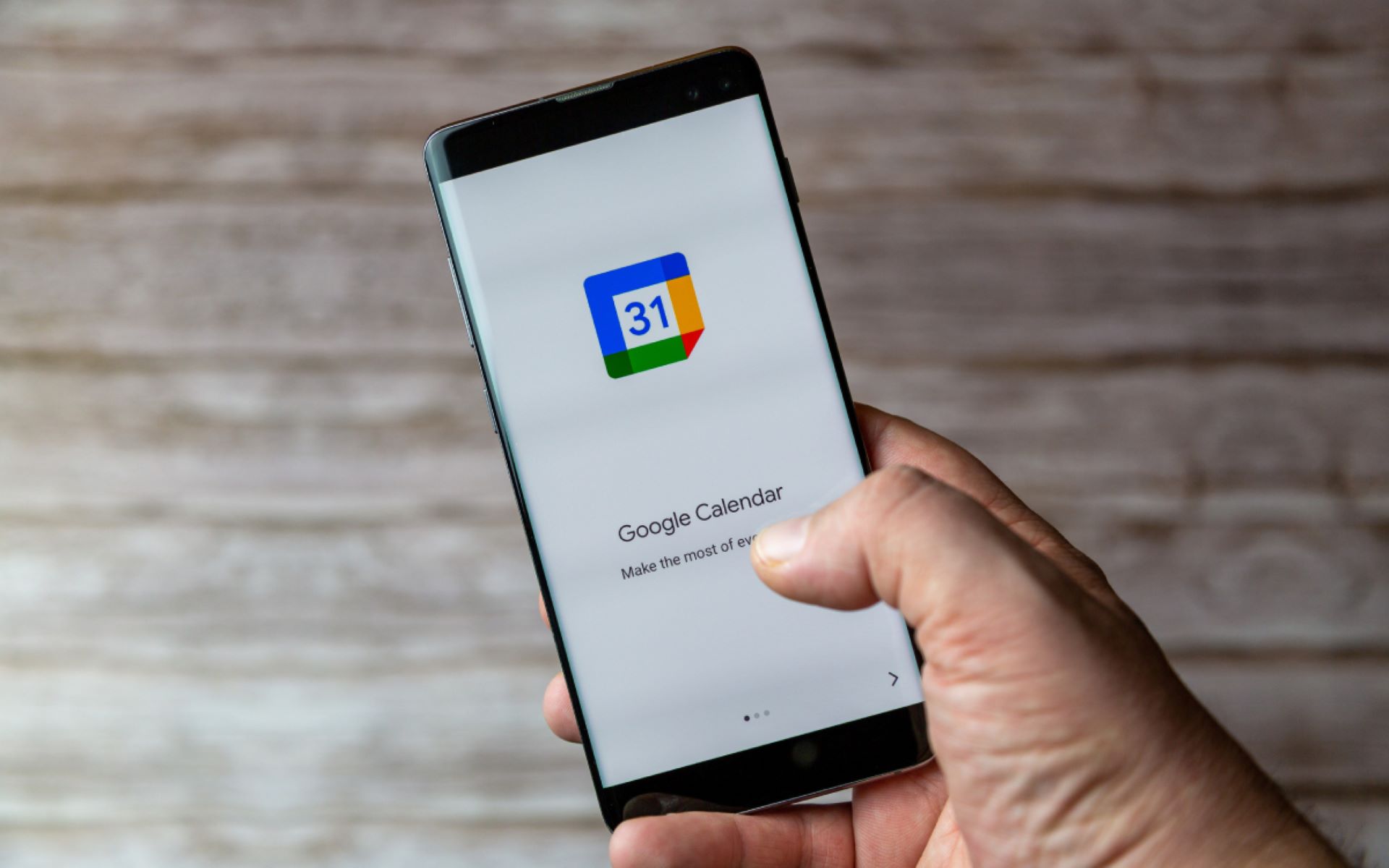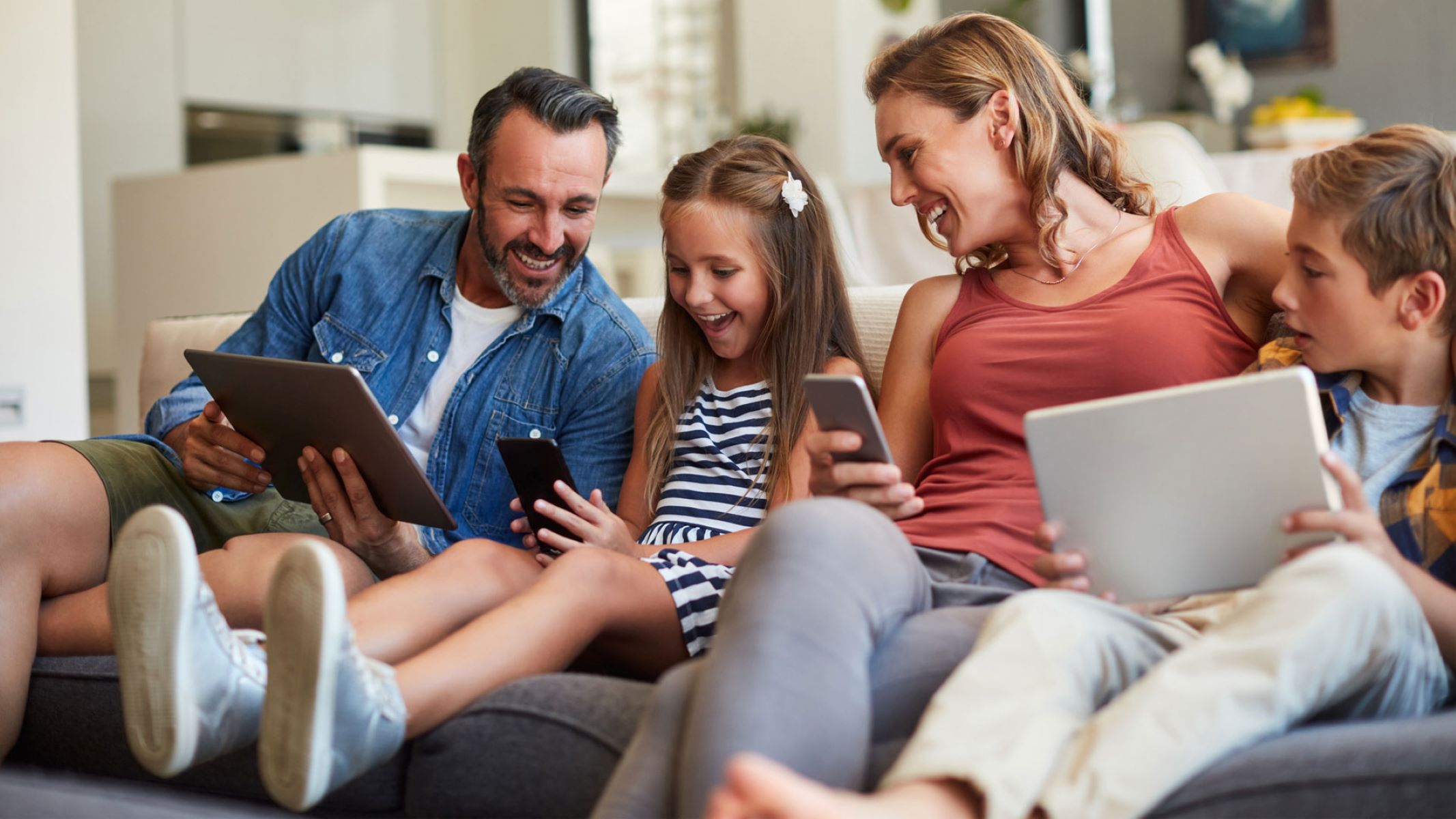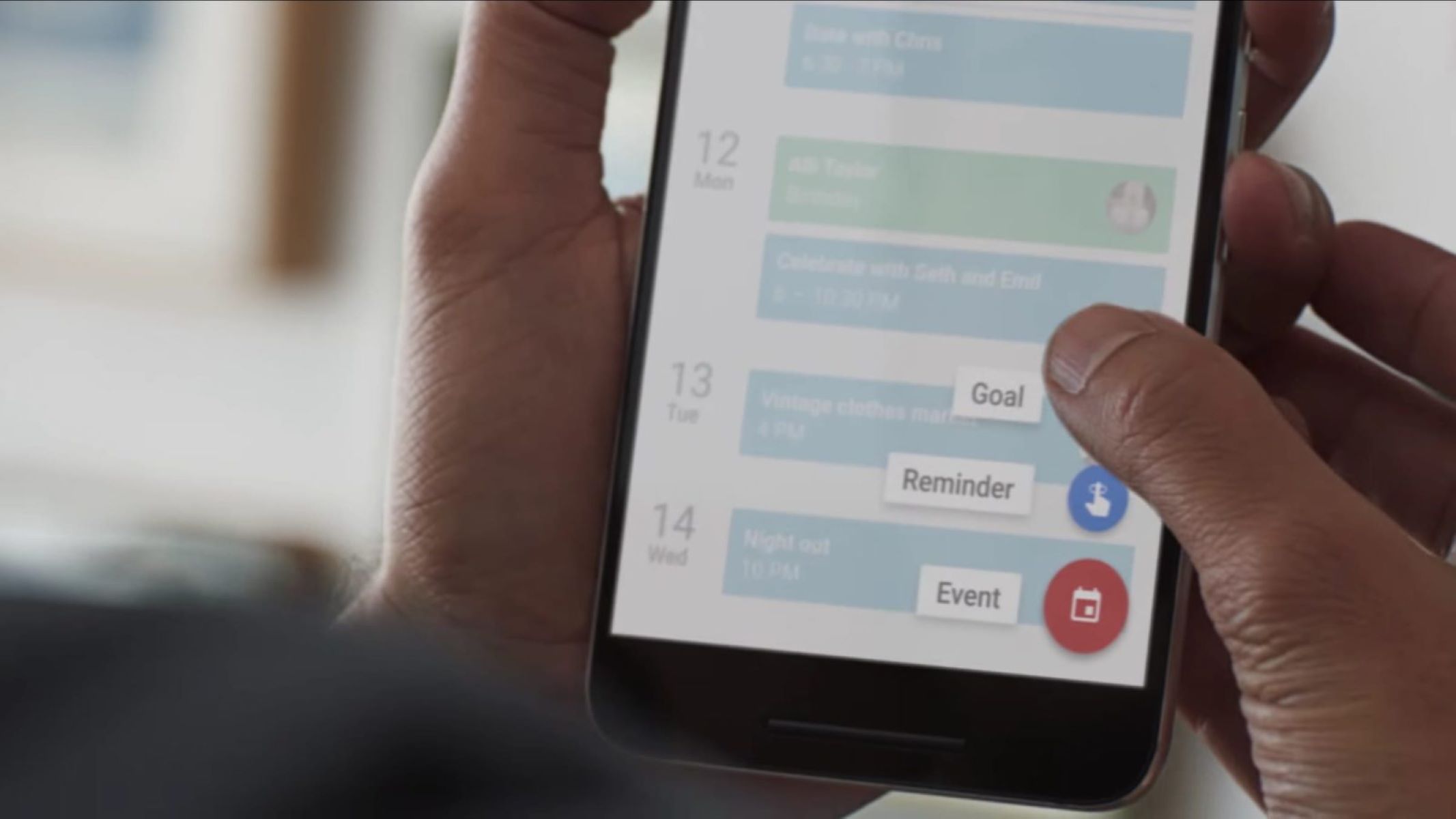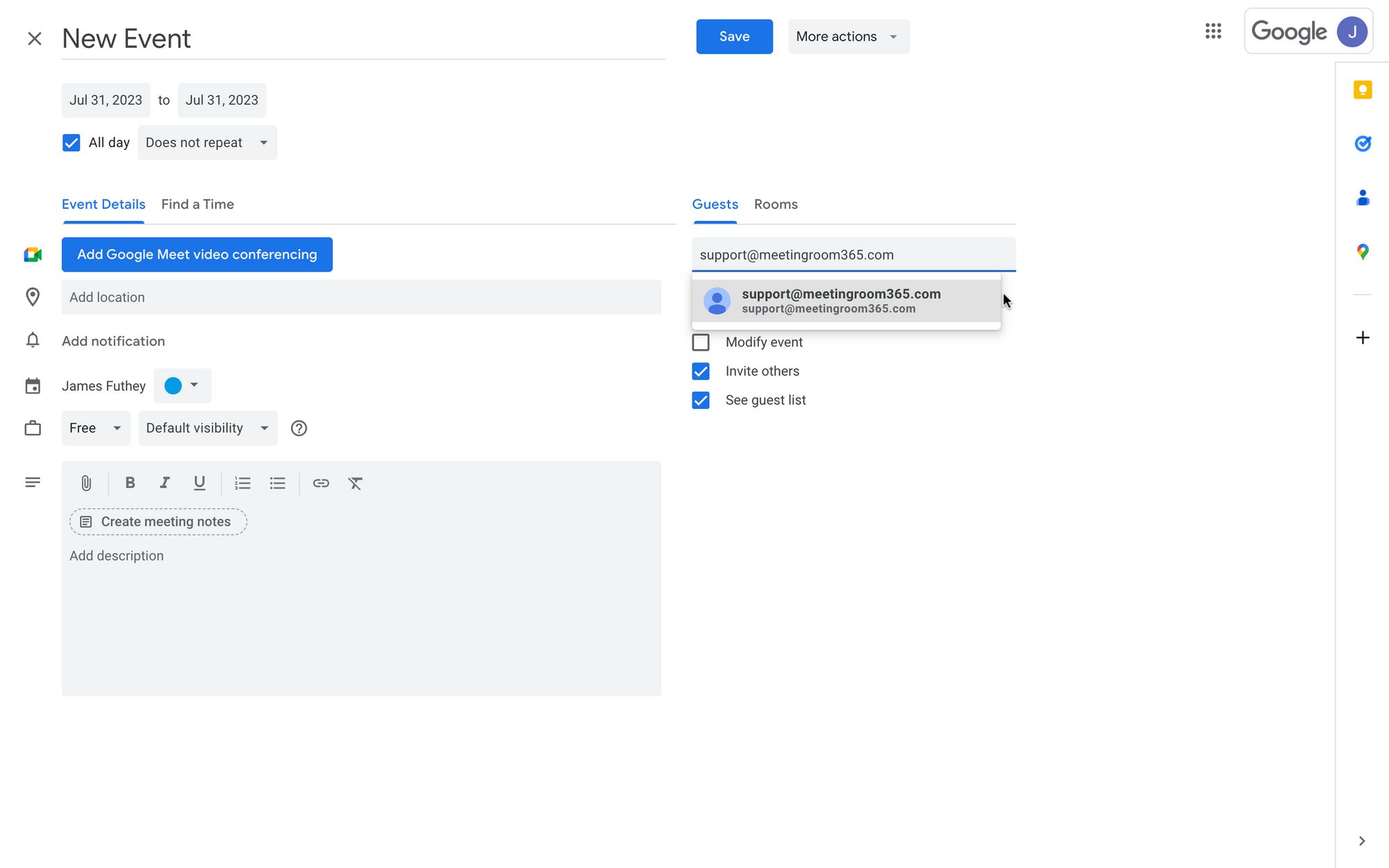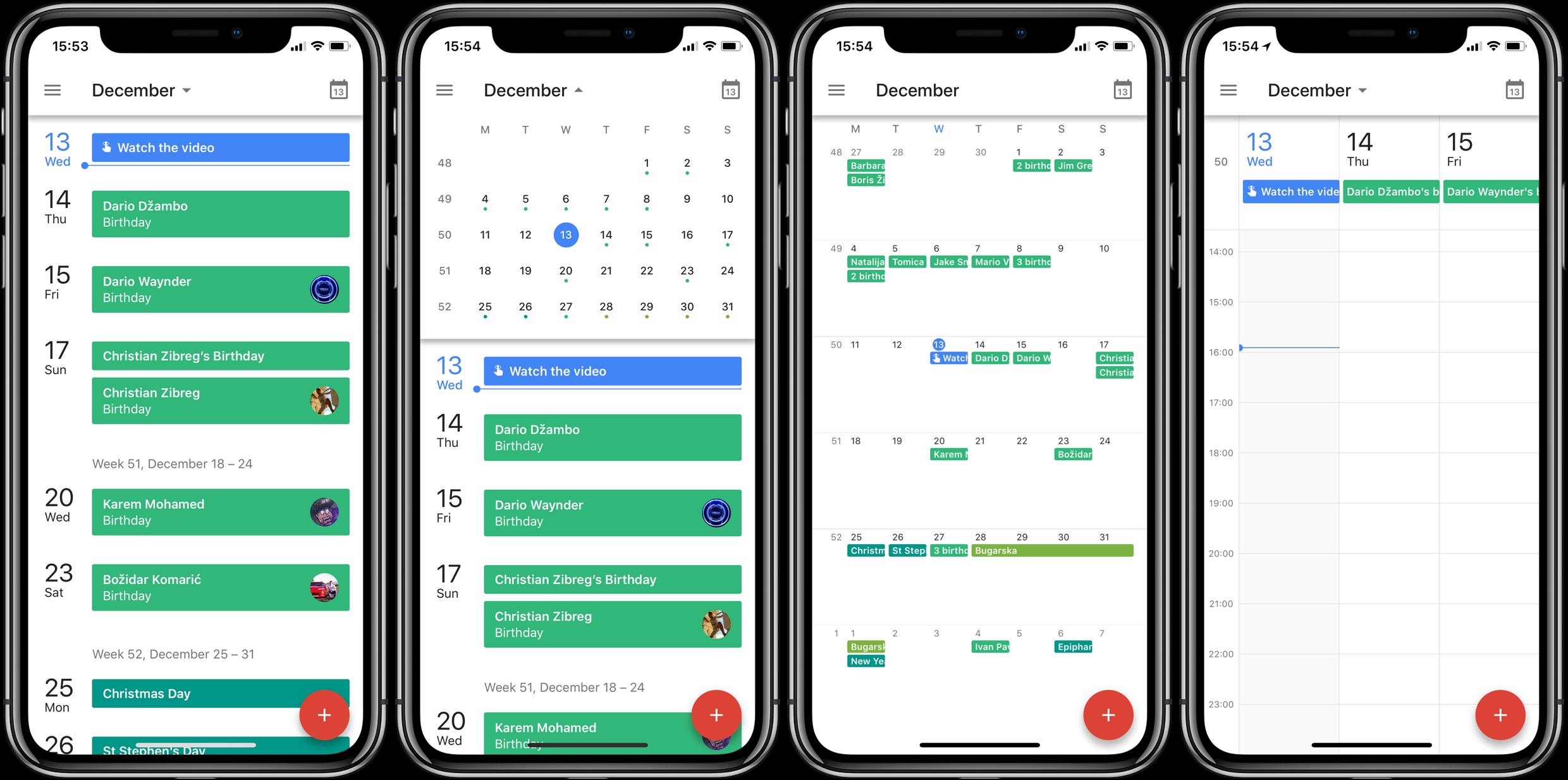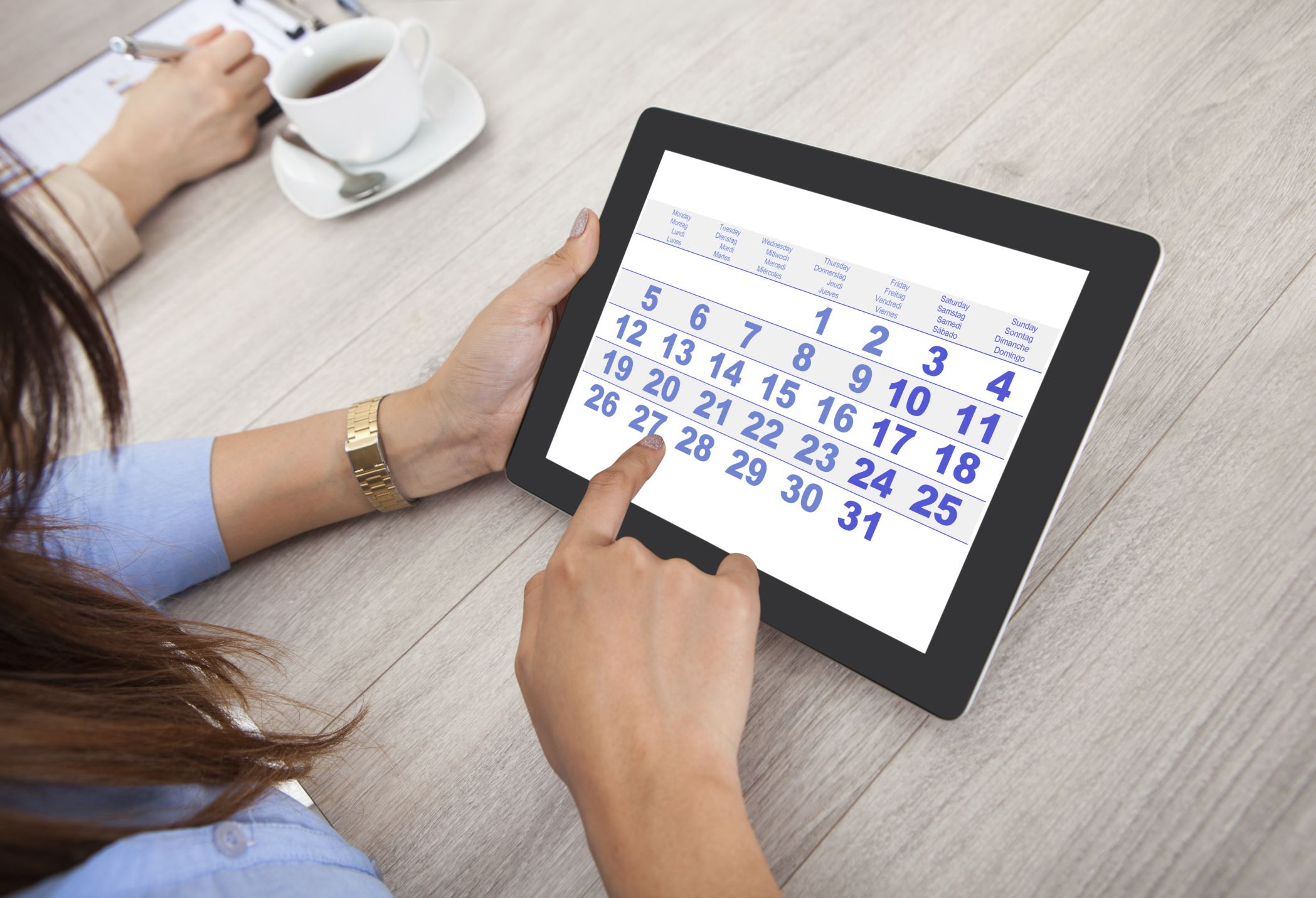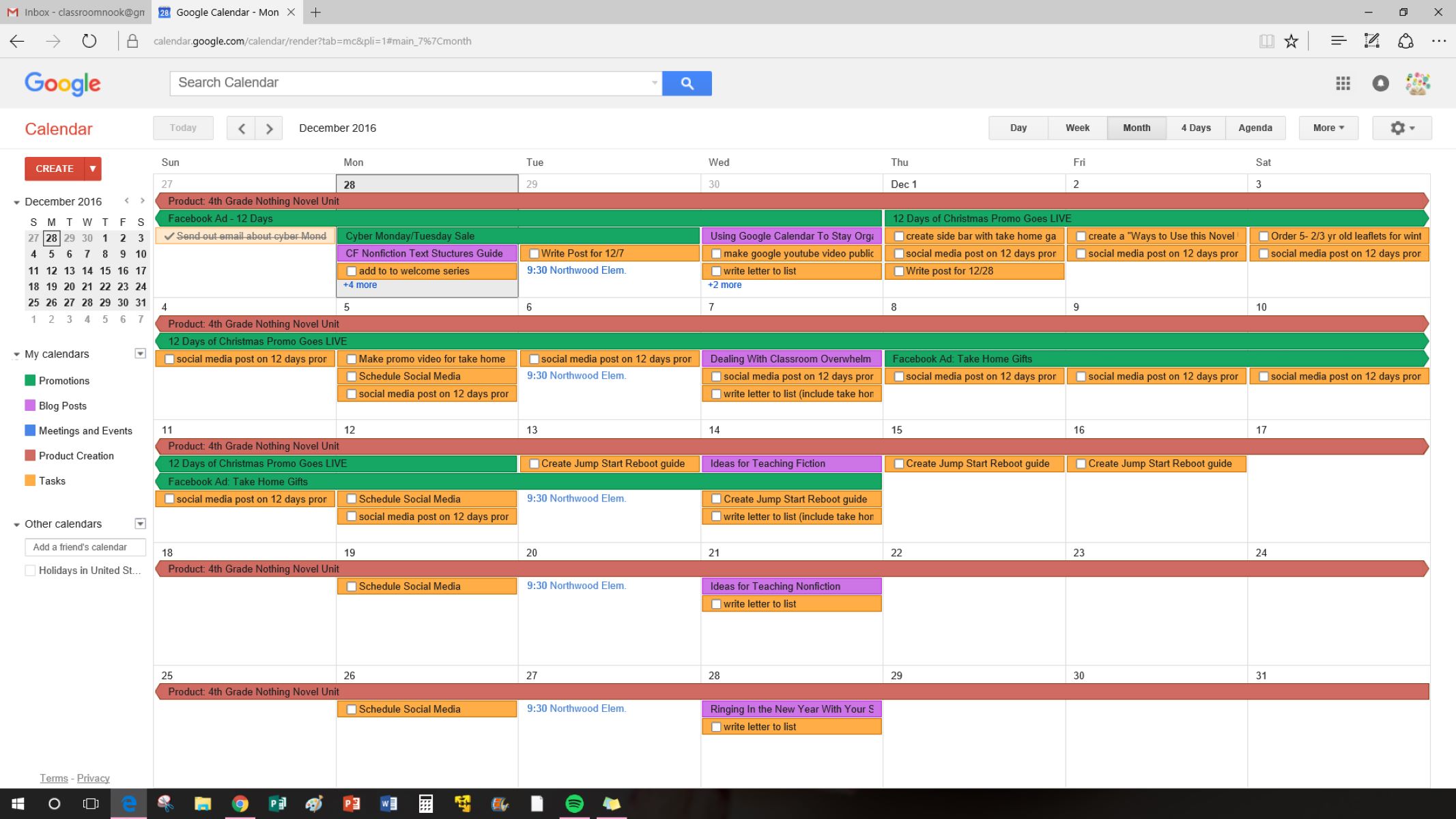Introduction
Google Calendar is a powerful tool for staying organized and managing your schedule. It allows you to easily create and manage events, set reminders, and receive notifications to ensure you never miss an important appointment. However, what do you do when you’re not receiving Google Calendar notifications?
Missing out on notifications can be frustrating and lead to missed deadlines, appointments, or even social engagements. This issue can be particularly troublesome if you rely heavily on your calendar for work or personal commitments. Fortunately, there are several reasons why you may not be receiving Google Calendar notifications, and solutions to help resolve the issue.
In this article, we will explore some common reasons why you might not be getting Google Calendar notifications and provide troubleshooting steps to help you get them back on track. Whether you’re using the Google Calendar web interface or the mobile app, we will cover the key areas to check and settings to review to ensure your notifications are working as intended.
It’s important to note that the specific steps and options may vary slightly depending on the device you’re using and the version of the Google Calendar app you have installed. However, the general principles and troubleshooting steps discussed in this article should apply to most situations.
So, if you’re tired of missing out on important reminders and want to regain control of your schedule, let’s dive into the various reasons behind the lack of Google Calendar notifications and how you can fix them.
The Importance of Google Calendar Notifications
Google Calendar notifications play a crucial role in helping you stay organized and on top of your schedule. These notifications serve as reminders for upcoming events, appointments, deadlines, and other important tasks.
With the hectic pace of modern life, it’s easy to forget about important commitments or get overwhelmed by a busy schedule. Google Calendar notifications act as your personal assistant, ensuring that you never miss an important event again.
Using Google Calendar notifications allows you to:
- Stay on Schedule: Notifications serve as timely reminders, ensuring that you stay on track and arrive at meetings or appointments on time.
- Be Prepared: Notifications can include important details about upcoming events, such as location, attendees, and any necessary preparations, so you can be fully prepared for what’s ahead.
- Manage Workload: By receiving notifications for deadlines or tasks, you can effectively manage your workload and allocate your time and resources accordingly.
- Stay Connected: Calendar notifications can remind you of social events, birthdays, or anniversaries, allowing you to stay connected with friends and loved ones.
- Plan Ahead: With notifications, you can stay ahead of your schedule by receiving reminders for future events, allowing you to plan and prioritize your time effectively.
Whether you use Google Calendar for personal or professional purposes, notifications are essential for ensuring that you’re organized, punctual, and prepared. They provide peace of mind and help you maintain a balanced and productive life.
Missing out on Google Calendar notifications can have serious consequences. It can lead to missed deadlines, embarrassing situations, strained relationships, and even financial losses if you fail to attend important meetings or events. Therefore, it is crucial to identify and address any issues that may be preventing you from receiving these important notifications.
Now that we understand the significance of Google Calendar notifications, it’s time to explore the common reasons behind their absence and learn how to fix them.
Common Reasons for Not Receiving Google Calendar Notifications
There are several possible reasons why you may not be receiving Google Calendar notifications. By understanding these common issues, you can effectively troubleshoot and resolve them. Here are some of the most common reasons:
- Notification Settings: It’s possible that your notification settings in Google Calendar are not configured correctly. Double-check that you have enabled notifications for the desired events and that your notification preferences are properly set.
- Email Configuration: If you have chosen to receive notifications via email, make sure your email address is correctly added to your Google Calendar account and that the email notifications are not being sent to your spam or junk folder.
- Mobile App Permissions: On mobile devices, ensure that the Google Calendar app has permission to send notifications. Check your device settings and verify that the app is allowed to send notifications. Also, ensure that the app is not being restricted by battery-saving or background data settings.
- Device Do Not Disturb Mode: If you have enabled the Do Not Disturb mode on your device, it may be blocking Google Calendar notifications. Make sure to disable this mode or whitelist the Calendar app to receive notifications.
- Software Updates: Outdated software can sometimes cause issues with Google Calendar notifications. Check for any available updates for your device’s operating system as well as the Google Calendar app itself.
- Notification Interference: Other apps or settings on your device may be interfering with Google Calendar notifications. Review the settings for any other apps that utilize notifications and ensure they are not conflicting with each other.
- Cache and Data Issues: Clearing the cache and data of the Google Calendar app can sometimes resolve notification problems. This process may vary depending on your device, but you can usually find it in the app settings under “Storage” or “Apps.”
By considering these common reasons, you can identify potential issues that may be preventing you from receiving Google Calendar notifications. In the following sections, we will delve into each of these areas in more detail and provide step-by-step instructions for troubleshooting and resolving the problem.
Checking Your Settings
When you’re not receiving Google Calendar notifications, the first place to check is your notification settings within the Google Calendar app or web interface. These settings control when and how notifications are delivered to you. Here’s how to check them:
- Google Calendar App: Open the Google Calendar app on your device and tap on the three-line menu icon to access the side menu. From there, tap on “Settings” and then select your calendar under “Notification preferences.” Make sure that the “Notifications” toggle is turned on and that you have chosen the appropriate notification options for your events.
- Web Interface: If you’re accessing Google Calendar through a web browser, open the calendar, click on the gear icon in the top-right corner, and select “Settings.” In the left-hand menu, click on “Notifications.” Ensure that the “Desktop notifications” and “Mobile notifications” options are enabled. You can also customize the notification settings for each specific event type.
After following these steps, review your notification settings and make any necessary adjustments. Ensure that the right calendar is selected and that notifications for events are enabled.
Moreover, double-check the specific settings for each event type (such as reminders, invitations, or all-day events) to ensure that the desired notifications are enabled. You can choose to receive notifications via email, push notifications on your device, or both.
Once you have reviewed and adjusted your settings, create a test event and set a notification to see if it triggers a notification correctly. If you still do not receive a notification, proceed to the next troubleshooting step.
Ensuring Proper Email Configuration
If you have chosen to receive Google Calendar notifications via email, it’s important to ensure that your email configuration is properly set up. Here are a few steps you can take to ensure you receive email notifications:
- Check Spam or Junk Folder: Sometimes, email notifications from Google Calendar can end up in your spam or junk folder. Make sure to check these folders regularly and mark any legitimate emails from Google Calendar as “Not Spam” or move them to your inbox. This will help ensure that future notifications are delivered to your inbox.
- Verify Email Address: Double-check that the email address associated with your Google Calendar account is correct. To do this, go to the Google Account settings and ensure that the correct email address is listed under the “Personal info” or “Email” section. If you need to update or add an email address, make the necessary changes and save your settings.
- Whitelist Google Calendar Email Address: To prevent email notifications from being filtered as spam, add the following email addresses to your email provider’s whitelist or safe sender list:
calendar-noreply@google.comandnotification-reply@google.com. This ensures that emails from Google Calendar are recognized as legitimate and are not blocked or filtered by your email provider. - Configure Email Filters: If you have set up any email filters or rules that automatically sort incoming emails into specific folders, make sure that you have not inadvertently created a filter that redirects Google Calendar notifications away from your inbox. Review your email settings and filters to ensure that notifications are not being automatically moved or categorized.
By following these steps, you can ensure that your email configuration is properly set up to receive Google Calendar notifications. It’s important to regularly check your spam or junk folder and whitelist the necessary email addresses to ensure that notifications are delivered to your inbox.
If you are still not receiving email notifications, proceed to the next troubleshooting step to explore mobile app notifications.
Troubleshooting Mobile App Notifications
If you’re using the Google Calendar mobile app and not receiving notifications, there are several troubleshooting steps you can take to resolve the issue. Here’s what you can do:
- Check App Permissions: Start by checking the app permissions for Google Calendar on your device. Go to the settings of your mobile device, find the “Apps” or “Applications” section, and locate Google Calendar. Ensure that the app has the necessary permissions enabled, including notifications and calendar access.
- Disable Battery Saving Modes: Some devices have battery-saving modes that can affect the performance of apps and restrict notifications. Disable any power-saving modes on your device or toggle them off for the Google Calendar app specifically. This will allow the app to run in the background and deliver notifications as intended.
- Enable Background Data: If your device has background data settings, make sure that the Google Calendar app is allowed to use background data. This ensures that the app can sync and deliver notifications even when it’s not actively in use.
- Restart the App: Sometimes, simply restarting the Google Calendar app can resolve notification issues. Close the app completely and then reopen it to see if notifications start coming through.
- Reinstall the App: If the above steps do not work, you can try uninstalling and reinstalling the Google Calendar app. This can help resolve any software glitches or conflicts that may be affecting notifications.
After going through these troubleshooting steps, create a test event with a notification to see if you receive the notification on your mobile device. If you still do not receive the notification, continue to the next step to clear cache and data for the app.
Remember, these steps may vary slightly depending on your device and operating system version. Refer to your device’s user manual or online resources for specific instructions if needed.
Clearing Cache and Data
If you’re still not receiving Google Calendar notifications on your mobile device, clearing the cache and data for the Google Calendar app can help resolve any lingering issues. Follow these steps to clear the cache and data:
- Android Devices:
- Go to your device’s settings and open the “Apps” or “Applications” section.
- Scroll down and find the Google Calendar app.
- Tap on the app and then select “Storage” or “Storage & cache.”
- Click on the “Clear cache” button to remove temporary data that may be causing issues with notifications.
- If the problem persists, you can go back to the app settings and choose “Clear data” or “Clear storage.” Note that this will remove all app data, including your saved events and settings. Make sure to sync your Google Calendar account before clearing the data to avoid losing any important information.
- iOS Devices:
- Go to your device’s settings and navigate to the “General” section.
- Tap on “iPhone Storage” or “iPad Storage” depending on your device.
- Locate the Google Calendar app and tap on it.
- Select “Offload App” to remove the app while keeping its data intact, or choose “Delete App” to remove the app and its data entirely.
- Afterward, reinstall the Google Calendar app from the App Store and sign in to your account to restore your calendar data.
Clearing the cache and data for the Google Calendar app helps to eliminate any corrupt or conflicting files that may be causing notification issues. It essentially gives the app a fresh start and can often resolve any underlying problems.
Remember to test the app after clearing the cache and data by creating a new event with a notification. If the issue persists, continue to the next troubleshooting step of updating the Google Calendar app.
Note that clearing the cache and data may vary slightly depending on your device’s make, model, and operating system version. Refer to your device’s user manual or online resources for specific instructions if needed.
Updating the Google Calendar App
If you’re still experiencing issues with Google Calendar notifications, it’s important to ensure that you have the latest version of the Google Calendar app installed on your device. Updating the app can often fix bugs, improve functionality, and resolve compatibility issues. Here’s how to update the Google Calendar app on your device:
- Android Devices:
- Open the Google Play Store app on your device.
- Tap on the three-line menu icon in the top-left corner.
- Scroll down and select “My apps & games.”
- In the “Updates” tab, locate Google Calendar in the list of apps.
- If an update is available, tap on the “Update” button next to Google Calendar to install the latest version.
- iOS Devices:
- Open the App Store on your device.
- Tap on your profile picture or icon in the top-right corner.
- Scroll down and locate Google Calendar in the “Available Updates” section.
- If an update is available, tap on the “Update” button next to Google Calendar to install the latest version.
After updating the Google Calendar app, launch it and check if your notifications start working properly again. Create a test event with a notification to verify if the issue has been resolved.
By keeping your Google Calendar app up to date, you ensure that you have the latest features and bug fixes, which can significantly improve the performance and reliability of notifications. If the problem persists even after updating the app, proceed to the next troubleshooting step of checking for software updates on your device.
Note that the steps for updating apps may vary slightly depending on your device and operating system version. Refer to your device’s user manual or online resources for specific instructions if needed.
Checking for Software Updates
If you’re still facing issues with Google Calendar notifications, it’s worth checking if there are any software updates available for your device. Software updates, whether for your device’s operating system or the Google Calendar app itself, can often address bugs and compatibility issues that may be affecting notifications. Here’s how to check for software updates on different devices:
- Android Devices:
- Open the settings on your Android device.
- Scroll down and tap on “System” or “About phone.”
- Select “System updates” or “Software updates.”
- If an update is available, follow the on-screen instructions to download and install it.
- iOS Devices:
- Go to the settings on your iOS device.
- Tap on “General.”
- Select “Software Update.”
- If an update is available, tap on “Download and Install” to update your device.
After updating your device’s software, restart your device and open the Google Calendar app. Verify if notifications are now working as expected by creating a test event with a notification.
Software updates often include important security patches and bug fixes that can resolve issues with app notifications. By keeping your device’s software up to date, you ensure that you have the best possible experience with Google Calendar.
If you have followed all the troubleshooting steps so far and are still not receiving Google Calendar notifications, it may be time to contact Google Support for further assistance.
Contacting Google Support
If you have tried all the previous troubleshooting steps and are still not receiving Google Calendar notifications, it may be necessary to contact Google Support for further assistance. Google provides various support channels to help resolve issues with their products, including Google Calendar. Here’s how you can reach out to Google Support:
- Help Center: Start by visiting the Google Calendar Help Center. Here, you can find helpful articles, FAQs, and step-by-step guides to troubleshoot common issues. Use the search bar to look for specific topics related to notification problems. If you don’t find a solution, proceed to the next step.
- Support Forums: Google offers community-driven support forums where you can post your issue and seek help from other Google Calendar users or experts. Often, someone may have experienced a similar problem and can provide guidance or a solution. The Google Calendar Help Community is a great place to start.
- Contact Google Support: If you’re unable to find a solution through the Help Center or support forums, you can try reaching out to Google Support directly. Visit the Google Support website and navigate to the Contact Us section. Choose your issue category and follow the instructions to get in touch with a support representative via phone, email, or chat support.
- Social Media: Another option is to reach out to Google’s social media accounts, such as their Twitter or Facebook pages. While this may not always provide direct support, they may be able to point you in the right direction or escalate your issue internally.
When contacting Google Support, provide as much detail as possible about the issue you’re experiencing, the troubleshooting steps you’ve already taken, and any error messages you’ve encountered. This information will help them better understand and address your problem.
Remember, Google Support is there to assist you, so don’t hesitate to reach out if you need further help with your Google Calendar notifications.
Conclusion
Google Calendar notifications play a vital role in keeping us organized and on top of our schedules. However, when we encounter issues with receiving notifications, it can disrupt our productivity and cause frustration. Fortunately, by following the troubleshooting steps outlined in this article, you can address common issues and get your Google Calendar notifications back on track.
We began by emphasizing the importance of Google Calendar notifications and how they help us stay on schedule, be prepared, manage our workload, stay connected, and plan ahead. These notifications ensure that we never miss important events or deadlines.
We then explored common reasons for not receiving Google Calendar notifications, including notification settings, email configuration, mobile app permissions, device Do Not Disturb mode, software updates, and notification interference. By identifying these potential roadblocks, we can effectively troubleshoot and resolve the issue.
We discussed the importance of checking notification settings in Google Calendar, ensuring proper email configuration, troubleshooting mobile app notifications, clearing cache and data, updating the Google Calendar app, and checking for software updates. Each step provided valuable insights and instructions to help you resolve notification problems.
In the event that all troubleshooting steps fail to resolve the issue, we encouraged you to reach out to Google Support. Whether through the Google Calendar Help Center, support forums, or direct contact, Google Support can provide further assistance and guidance.
In conclusion, receiving Google Calendar notifications is crucial to staying organized and managing our busy lives. By understanding and addressing the common issues that can prevent notifications from reaching us, we can rely on Google Calendar to keep us on track and ensure we never miss an important event again.







